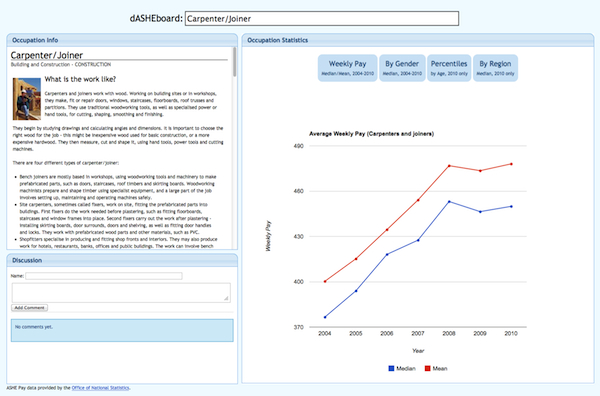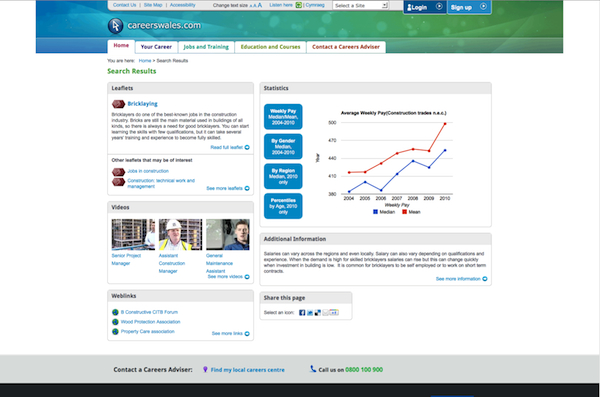We have done some substantial research into how young people use the internet for researching careers and what they are trying to find out. Interestingly, we found they tended not to go to official careers sites but rather used Google to search the web. One of the most commonly asked questions was ‘how much can I earn’ in a job or occupation? Other questions included:
- How many people are employed in an occupation?
- Where are people employed?
- What qualifications do I need?
- What are the opportunities for progression?
- What other opportunities might a particular career offer me?
- Where are the jobs going to be in the future?
- What are the education and training opportunities?
Besides these questions about jobs and careers, some young people want to find out more information about places, particularly if further education or training involves moving away from home. These might include:
- The cost of housing and the cost of living in a particular town or city
- Travel to work distances, time and cost
- The quality of life in a town or city and social amenities
- For those with children or planning to have children, the availability of childcare and schooling
 And of course, in the present economic climate, the cost of education and training, reltaive to the perceived benefits and rewards, is an increasingly important question.
And of course, in the present economic climate, the cost of education and training, reltaive to the perceived benefits and rewards, is an increasingly important question.
A Google search provides somewhat unreliable and almost random answers to many of these questions. For example searching for the pay for a particular occupation is likely to lead to one of a number of sites who have crowd sourced the answer. And the sample sizes are usually very small (and thus unreliable). Data alone cannot answer all of these questions, either fort young people or for the careers advisers that support them. However there is considerable data, collected by government agencies – notably the Annual Survey of hours and Earnings, the quarterly Labour force Survey, the Business Survey, student destination surveys and various reports and surveys by Sector Skills Councils. Additionally there is interpreted data published by such bodies as the UK Commission for Employment and Skills (UKCES).
Our pilot work is based on visualising data sets which can help answer the questions above and providing a layer of social software to allow commenting and querying to allow meaning and sense making.
 Our first application (codenamed Careers dASHEboard) is aimed at helping careers advisers and young people determine how much they might earn in a given occupation and what job opportunities there are in that occupation.
Our first application (codenamed Careers dASHEboard) is aimed at helping careers advisers and young people determine how much they might earn in a given occupation and what job opportunities there are in that occupation.
The application provides access to mean and median pay rates for over 640 different occupations along with a description of those occupations. It also provides a visualisation of pay rates by gender, by percentile age group and by region. Further information is provided on the number of jobs in a particular occupation, both nationally and on a local authority basis.
 The application is being piloted in partnership with Careers Wales on the new beta version on their website.
The application is being piloted in partnership with Careers Wales on the new beta version on their website.
We also intend to develop further pilots in autumn 2011 with Connexions Northumberland.
Rather than focus on developing our own website, we are aiming to develop web services, so the data tools can be incorporated in other organisations web sites, thus reaching more people.
Future plans include the extension of the range of datasets we are offering (and thus core questions we are addressing), the development of further social layering tools and the development of a mobile interface.